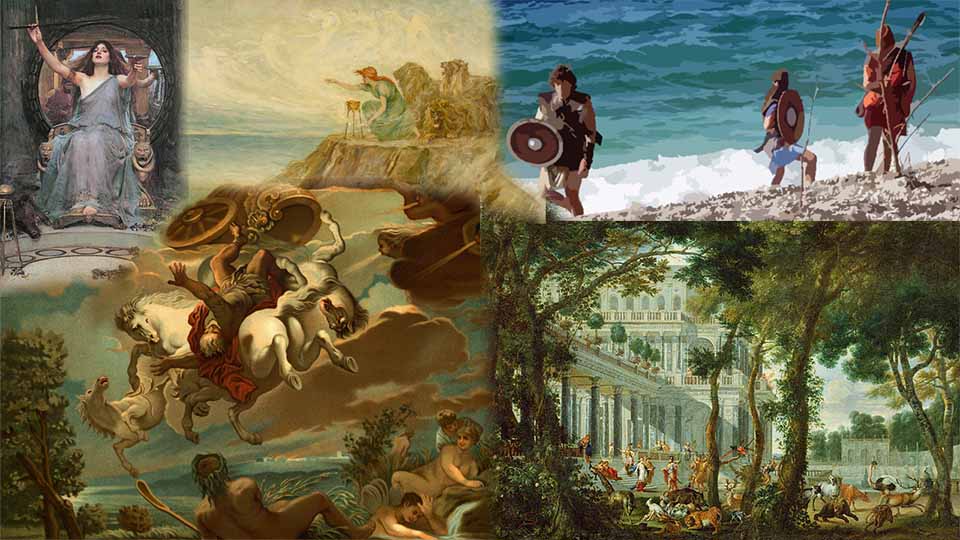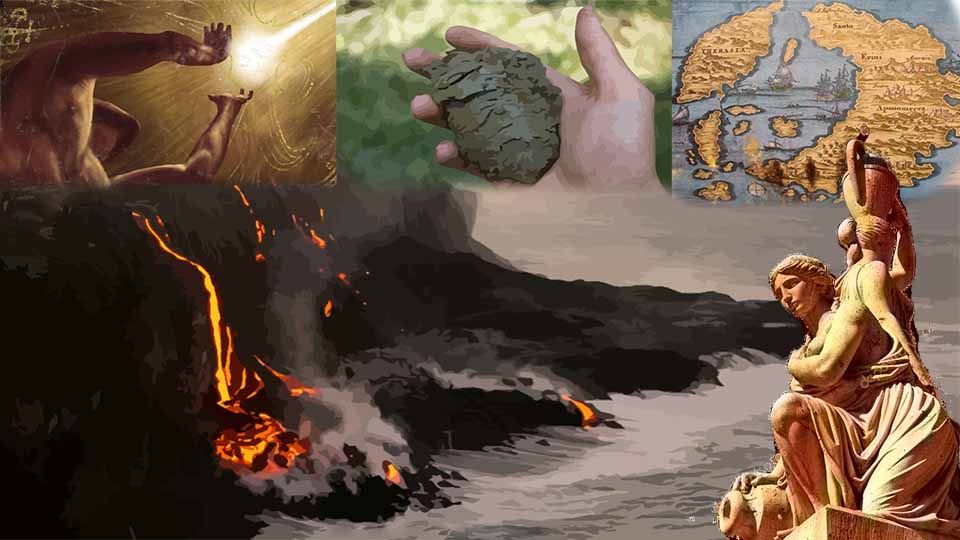The expedition of the Argonauts
and its connection to geography, folklore and hisory
The myth of the Golden Fleece
Phrixos and Helle were children of Athamas and Nepheli from Orchomenos. When their mother died, Athamas married Ino, who hated Athamas' children and found a way to conjure up a false oracle so that the children would be taken out as an offering to the gods.
But Nefeli convinced Zeus to intervene and so shortly before the sacrifice a magical golden ram took the children on its back and flew away.

The Argonauts, Phaethon and their path in the Italian peninsula
When the Argonauts reached the mouth of the Iridan River, they smelled a strong odor. It was the smell of the charred body of Phaethon that had fallen from the burning chariot of his father Helios into a lake nearby. The Argonauts for the second time sailed through the river that crossed the Italian peninsula and found themselves in a tributary of the Rhone River that crossed the lands of the Celts and the Lygians.
They ended up in the Tyrrhenian Sea at the Stoechades islands. then they reached the island of Aethalia (Elba), where it was said that since then the pebbles on the beach took on the color of human skin, because the Argonauts wiped their sweat on them. Shortly before reaching the island of Circe, the Argo docked at an Etruscan bay that later took the name of the Argonaut Telamon.
The birth of Anaphe, Santorini and the fulfillment of a prophecy for Euphemos the argonaut
On their return to Iolkos, as they were moving away from Crete, the Argonauts encountered bad weather with deep darkness. This time the god Apollo decided to show them the way of salvation with a bright ray that shone on the horizon. Jason and the Argonauts followed it to find anchorage and rest on the island named Anaphe (anaphenomae = appearing).

Shortly after their departure from Anaphi, Euphemos had a dream in which the soil that he had received in his hands from the god Triton was covered with drops of milk and a beautiful girl jumped out of it. She told him that she was the daughter of Triton and Libya and begged him to throw her into the sea to find the Nereids.
She promised him that she would later take her human form to serve his descendants. Euphemus prayed to Hermes the god of dreams and told Jason of his dream. He advised Euphemus to throw the lump of soil into the sea and that the Libyan soil he got from the hands of Triton meant that the god was granting his descendants sovereign rights over Libya. So Ephemos threw the rocky ball into the sea and from that point emerged a whole and beautiful island which was originally called Kalliste, i.e. "Beautiful"
Kalliste is the volcanic island of Santorini that even today has the remains of a volcano in its center. A sign that it may indeed have emerged from the depths of the Aegean Sea. Later, when settlers came from Sparta led by Theras, they named the island Thera. The descendants of Ephemos lived there. After years one of them, Aristotle, went to Libya and founded the city of Cyrene. This is how Ephemos' dream finally came true.
The legend of the Colchean gold
Geologists theorie suggest that perhaps the golden fleece was one of the methods of trapping gold in fleece inside the rivers of the regions where the peoples of the Black Sea lived.
Geologists and historians from Georgia's Tbilsi University believe that the Svaneti region coinsides with the ancient kingdom of Colchis and that the Argonauts expedition was a quest by Jason and the ancient Greeks to uncover the secrets of gold mining. The inhabitants of the area used to dip fleece in the streams of the rivers to collect gold nuggets, thus creating the "golden fleece".
With information from wikipedia and mixanitouxronou.gr